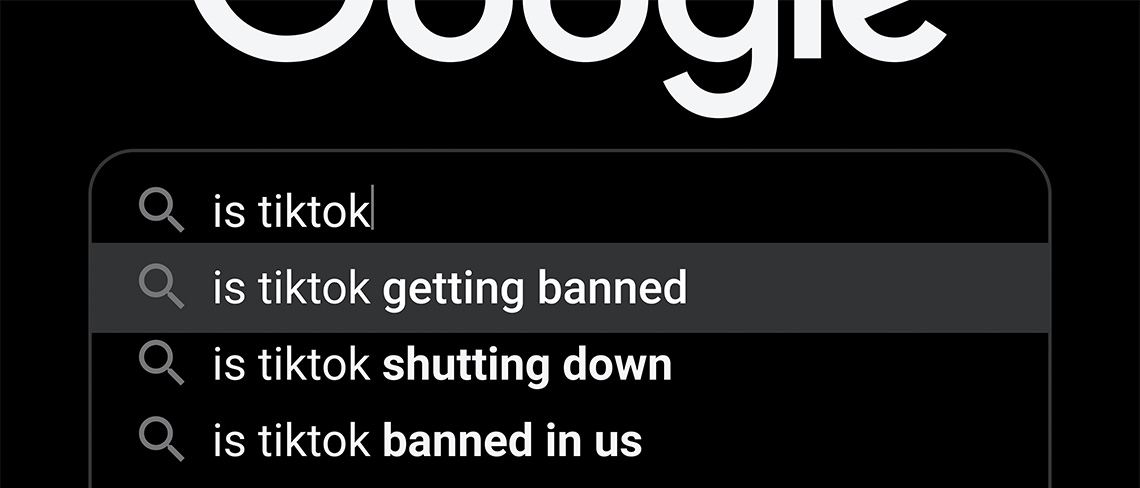Rooster Reacts: TikTok’s Ban is Finally Here

After months of speculation about the legality, possibility and commitment of President Trump’s TikTok ban, it’s finally here.
From this Sunday, 20 September 2020, new downloads of TikTok will be banned on devices in the United States. However, current users will continue to be allowed to use the app until 12 November 2020 unless a new deal is arranged.
Fellow Chinese-owned app WeChat is banned entirely from Sunday.
This kind of news is a bit odd for two reasons. First, it’s more political news than social news. Second, it’s not even social news if you consider ‘social media’ to be predicated on a network of followers — you don’t need to follow anyone or even be followed by anyone to take advantage of TikTok’s famous algorithm.
That said, here’s a rough timeline of the ban to date:
On June 29th, India banned TikTok amongst a series of other Chinese-owned apps as border tensions escalated. On August 6th, Trump signed an executive order to ban TikTok.
Then, on August 19th, Trump signed another executive order giving TikTok 90 days to sell. A whole bunch of companies, both tech and otherwise, came to the table with prospective bids.
Earlier this week, TikTok announced that Oracle won that sale though both companies have described it as a ‘partnership’ not a sale. Today, Friday 18 September, the U.S. Department of Commerce announced the ban will take effect from this Sunday.
So what does Rooster think about the TikTok ban in the United States?
Jo Kendall, Account Director:
“I’d say it’s a worrying restriction of self-expression that could soon lead into press restrictions, etc. Regional papers that traditionally investigated local crimes are already closing. Jeffrey Epstein was brought down by the Miami Herald after all — not a national publication. Of course, we could say that TikTok is used by those under-25 as a way to connect with peers and is mostly harmless, but the U.S. clearly thinks it’s dangerous.”
Hannah Carlisle, Senior Account Executive:
“It’s interesting that Trump also announced yesterday his intentions to promote ‘patriotic education’ to teach youths to love America again. It seems like banning TikTok could be another way for him to censor the spread of the opposition’s voice amongst youngsters.”
Zac van Manen, Senior Social Manager:
“I don’t actually think it’s as much of a Trump kneejerk as it is a response to the U.S. and China’s fundamental ideological oppositions — capitalism vs. ‘communism with Chinese characteristics.’ 90% of TikTok’s revenue comes from American users while most of what we would consider ‘the Internet’ is banned in China altogether.”
Yasmine Triana, Head of PR:
“Sure, but it’s not the only Chinese company getting rich off American users.”
Zac:
“That’s true, but other industries are more accessible for American companies in China whereas the Internet, which the UN considers a human right, is heavily regulated in China.”
Hannah:
“I agree with that but I also think the President is conscious of media he can’t control. Sort of a two birds, one stone kind of situation — removing an outpost of Chinese influence that he can’t control while also removing a hub that lots of youths use to mock him.”
Yaz:
“Mostly I’m concerned that people will lose the massive engagement from TikTok that they haven’t gotten from other platforms. Will this continue on Reels or Shorts? TikTok’s FY page means people/brands could lose millions of views they’ll have to convert elsewhere which does, unfortunately, feed back into the Google and Facebook duopoly of digital advertising.”
Is the UK next to ban TikTok?
Yaz:
“After Huawei the UK can’t afford to have issue with TikTok as well. Considering the bids for a buyout exclude the UK region, and a London HQ is in the mix, there’s little indication TikTok is at risk of being banned in the UK.”
Zac:
“While the UK’s offering to resettle Hong Kong citizens after the contentious events there a few weeks ago, I don’t see them banning the app anytime soon. It’s more about a decentralized vs. centralized economy than it is about data security and the UK’s not the best example of decentralization.”
For an insight into the social industry’s thoughts overall on the TikTok/Washington/Beijing situation, here are a few tweets from Adam Mosseri, Head of Instagram, on the issue:
Careful with this headline, the ban is only of *new downloads* of TikTok, an outright ban will happen on 11/12 unless a deal is made.
I’ve said this before, but a US TikTok ban would be quite bad for Instagram, Facebook, and the internet more broadly. https://t.co/2tPPgAkI4K
— Adam Mosseri (@mosseri) September 18, 2020